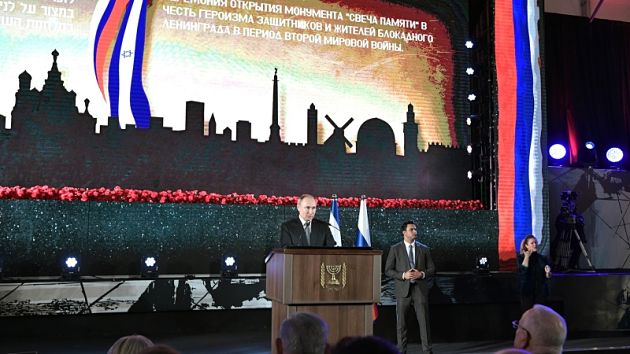The main issues for Russians this week were undoubtedly the planned changes to the country’s constitution (link) and the composition of the new government (link). As we have previously discussed, both of these issues affect Muslims, with the former being of particular importance. Colorful illustrations of what we have written about continued to arrive throughout the week.
For example, first there was the actual hostage-taking, followed by the exchange of Israeli citizen Naama Issachar for the Alexander Nevsky Podvorye in Jerusalem, which the Russian Orthodox Church claimed as its property (link). What are they saying? Aside from the fact that hooliganism has become the norm in Russia’s relations with the rest of the world, it is instructive to note whose interests this state-sponsored hooliganism serves: Article 14 of the Russian Constitution states:
“1. The Russian Federation shall be a secular state. No religion may be established as a state or compulsory religion.
2. Religious communities are separate from the state and equal before the law.
And what do we see in practice? The foreign policy of the state is subordinated to the interests of a religious organization. After all, they do not exchange the captured Israeli for any Russian imprisoned in Israel, although there are certainly such individuals. And not for something that could benefit the entire multinational population of the secular (on paper) state, but for a gift to a specific, privileged religious organization.
We will come back to Israel a little later, but for now, here is another illustration of how the Kremlin treats the main provisions of the Russian Constitution that concern Muslims. For example, Yuri Chaika, the former Prosecutor General of the Russian Federation and the newly appointed Special Representative of the President of the Russian Federation in the North Caucasus, said the following about his appointment: “My roots are also in the North Caucasus. My grandfather served in the convoy of His Majesty’s Vicar in the Caucasus – Grand Duke Nicholas Nikolayevich Romanov – before the revolution. And now I am going there as a special envoy of the President of the Russian Federation, which is essentially a position similar to that of a vicar. In other words, for Chaika, the position of special representative of the (nominal) head of the federal state in one of the federal districts is analogous to the position of vicar in the imperial colony. And as a civil servant, he serves not the state and the multinational people of the Russian Federation, which the Constitution designates as the sole source of its power, but “the state and the leader of the country,” in other words, practically the equivalent of a king.
And this is said by a former Prosecutor General and former Minister of Justice… Well, what can be said about it – Chaika is basically right. More precisely, he is revealing the truth. The truth that modern Putin’s Russia is not a federation at all, but a colonial empire, and that its officials serve not the people, but the new king, who now serves for life. And since this king and this empire are united with the Russian Orthodox Church, and in this case they send their vicar to the “infidels”, their position in this country becomes obvious…
But let’s return to Israel… If there is one difference between Putin’s Russia and pre-revolutionary tsarist Russia, it is the attitude toward Jews. In the latter, they were discriminated against along with Muslims, while in Putin’s Russia, certainly if it is necessary for the Russian Orthodox Church, they could also capture an Israeli citizen in order to exchange her for an Orthodox monastery in Jerusalem. But the general attitude has certainly changed. In recent months, the new king has tried to prove how much he loves Jews and hates anti-Semites, culminating in his visit to Israel for commemorations of the victims of the Holocaust. In his understanding, taking an Israeli citizen hostage does not contradict this love; apparently, in the spirit of a Russian proverb, “he beats, therefore he loves”. Finally, it is no problem for Netanyahu to give his friend an Orthodox monastery that has always been and will continue to be in Israel. But it does provide an opportunity to demonstrate the special relationship between Israel and Russia, and thus to gain the sympathy of the “Russian Jewish” electorate against the backdrop of the upcoming unscheduled elections, which Putin has an easier time of – he no longer needs to win any more elections, since he already knows the results, as well as the results of any “referendums” in Russia.

